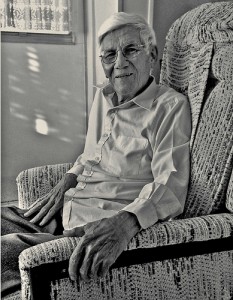 According to a report released by the Alzheimer’s Association on Tuesday, minorities have a higher risk of developing degenerative mental diseases like Alzheimer’s and other forms of dementia. Blacks are about two times as likely to develop the diseases as non-Blacks, and Hispanics are about 1.5 times as likely to develop the disease. It is believed that these disparities are not caused by genetics but rather by economic and cultural factors.
According to a report released by the Alzheimer’s Association on Tuesday, minorities have a higher risk of developing degenerative mental diseases like Alzheimer’s and other forms of dementia. Blacks are about two times as likely to develop the diseases as non-Blacks, and Hispanics are about 1.5 times as likely to develop the disease. It is believed that these disparities are not caused by genetics but rather by economic and cultural factors.
Socioeconomic inequality is a key factor in understanding why minorities suffer from Alzheimer’s at such a high rate. According to Angela Geiger, the chief strategy officer for the Alzheimer’s Association, minorities are at a disadvantage because of limited access to healthcare and early detection procedures, along with a greater susceptibility to conditions that are linked to Alzheimer’s like high blood pressure and diabetes.
Beatriz Terrazas, whose mother and mother-in-law both have Alzheimer’s, sees first hand the impact of economics on the disease and its victims.
Her white, well-educated mother-in-law has more financial resources and better insurance, says Terrazas. She lives in a residential care facility.
In contrast, Terrazas’ 80-year-old mother, who has a sixth-grade education, relies on Medicaid and lives with her younger daughter in El Paso, Texas. She goes to an adult day care and has a Medicaid-funded home companion or a relative help with her care. When there is no one to care for her, the elder Mrs. Terrazas follows her daughter to work.
Culture also appears to play a role in the way families of Alzheimer’s sufferers seek treatment for their loved ones. According to Dolores Gallagher-Thompson, a professor of psychiatry and behavioral sciences at the Stanford University School of Medicine, some families hail from cultures with such elevated respect for their elders that they refuse to acknowledge the compromised psychological condition of the afflicted relative.
Cultural mores about caring for the elderly can also create hardship for families who feel a filial obligation to care for the elderly at home, according to Gallagher-Thompson, who is also director of the Stanford Geriatric Education Center.
“There are very strong cultural taboos against nursing home placement or assisted living,” she said. “The idea is that the family is everything. You have to keep the person at home, no matter how hard it is to take care of them.”
Attending to a dependent elderly relative, whether because of financial or moral constraints, will inevitably cause difficulties for these families. The Alzheimer’s Association‘s report estimated that 11 million Americans provide 12.5 billion hours of unpaid care for loved ones. The increased stress and deferred productivity can take a harder toll on families who are already struggling financially.
Those who are compelled to place their elderly relatives in care facilities suffer emotionally as well.
“They feel, ‘I’m letting down my mother, father or both parents,’ ” said Betty Marquez, an owner of New Horizons Adult Day Care, an El Paso center for the elderly that has mainly Hispanic clients.” They’ve sacrificed so much, and they can’t give them the time of day since caring for Alzheimer’s, it’s 24-7. On top of that, they’re working, and it’s impossible.”

Recent Comments